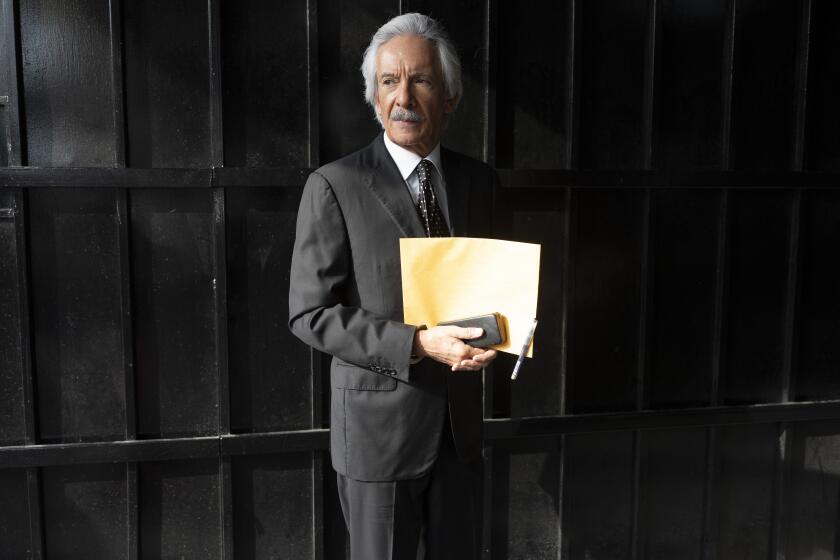Top Marine Deems Osprey Vital to Corps
In a low-key but passionate defense of the troubled V-22 Osprey aircraft, Commandant of the Marine Corps James L. Jones on Thursday called the Osprey vital to the future of the Marine Corps and said there is no indication that a design flaw is the cause of recent crashes.
“The technology is not the issue, as far as the accidents,” the general said. “We will get beyond this sad period where we have had to console grieving families.”
Jones, speaking at a military-industrial convention sponsored by the U.S. Naval Institute and the Armed Forces Communications and Electronics Assn., said that “my personal confidence is still high” in the innovative aircraft that can take off like a helicopter and fly like an airplane.
Still, “I’m not going to be one who just falls in love with the program. . . . If it proves not to be the right way, we won’t do it.”
On Wednesday, Jones asked that the Marine Corps investigation into alleged falsification of maintenance records be shifted to the Pentagon inspector general to avoid any appearance of conflict.
The inquiry was ordered after a lieutenant colonel admitted that he had ordered Marines at an Osprey base in New River, N.C., to certify the aircraft as ready to fly even when they were not.
Twenty-three Marines have been killed in two Osprey crashes in the last year, including 15 from San Diego who died in an April 8 crash in Arizona that claimed 19 lives.
Jones told reporters the American public should realize that aviation, civilian or military, carries risks. He likened the Osprey crashes to the 1986 explosion of the space shuttle Challenger.
“The Challenger [disaster] did not end the space shuttle missions,” Jones said. “That tragic accident was certainly . . . horrific . . . but we went beyond it because it was important to do that. This is kind of where we are with the Osprey. It is my hope that we can go beyond it.”
The Osprey is meant to replace the aging Vietnam War-era CH-46 helicopters in carrying troops and equipment ashore. Jones noted that, in many cases, the CH-46s are older than the Marines they are carrying.
Jones said he is pained by accusations from family members of Marines killed in Osprey crashes that the craft was not ready for flight. But he said such allegations will not deter the program.
“We grieve for the families. We wish it never happened,” Jones said. “But we have to sit back and, in a dispassionate, detached way, say: ‘What’s the right thing to do . . . for the next generation of Marines?’ ”
More to Read
Start your day right
Sign up for Essential California for news, features and recommendations from the L.A. Times and beyond in your inbox six days a week.
You may occasionally receive promotional content from the Los Angeles Times.






